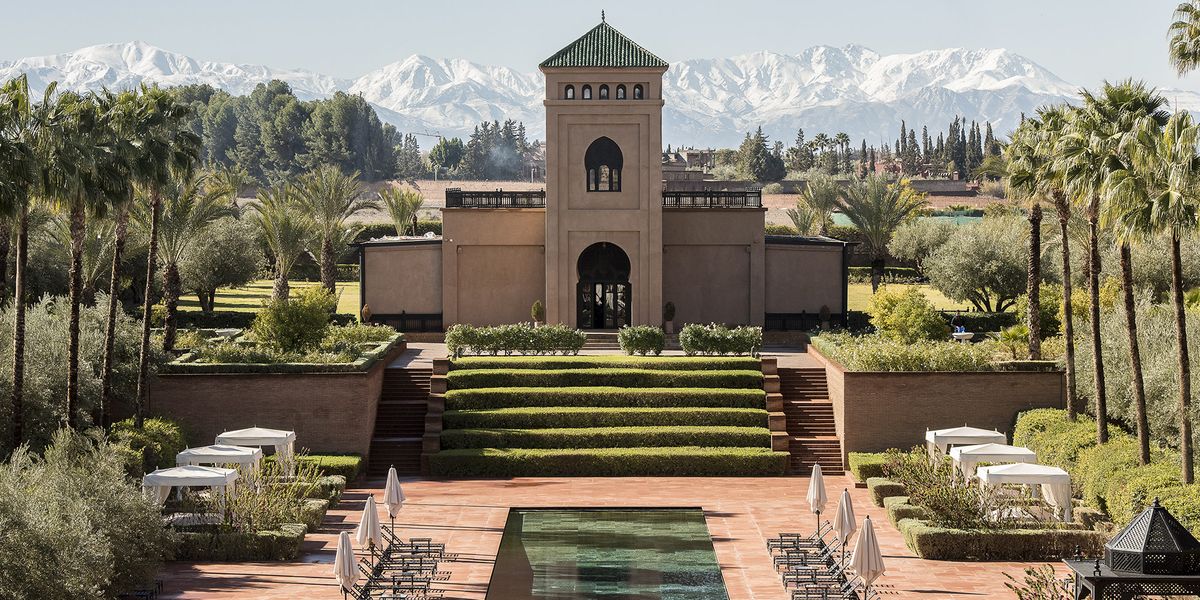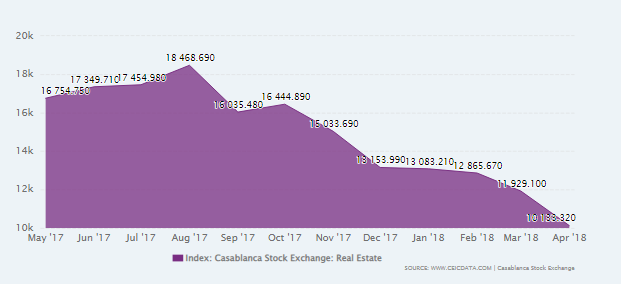Can Prop-tech Save The Day In Morocco? The Property Challenge

An industry without a problem does not exist. Without a challenge, there is no need for existence, as all will seem too smooth, uninteresting and in fact boring. There won’t be a need to task the brain, there is no thrill or hunt for a solution. In all honesty, a challenge is one of the basic needs for existence.
Yet, there is always a pattern for the challenge. More like Math arithmetic, there is usually a universal identification for a challenge. The twist comes when the challenge takes a different turn from the usual pattern. This is the case we have in Morocco’s Real Estate sector.
The challenge in the Moroccan Real Estate sector is quite unique. Unlike other countries where housing facilities are not enough, causing a rise in demand and an increase in the value of the sector, the reverse is the case in Morocco.
Real Estate in Morocco
The Moroccan Real Estates sector currently experiences what seems like a standstill. Between the years 2019-2022, there has been a drastic fall in the value of the sector. “Morocco house prices grew 1.3% YoY in Sep 2022, following an increase of 0.4% YoY in the previous quarter. YoY growth data is updated quarterly, available from Mar 2007 to Sep 2022, with an average growth rate of 0.3%,” this is according to a report by Ciec Data in 2022.
Studies reveal that the fall did not actually begin in 2019 but had been creeping down from as far back as 2017.

Numbers show an obvious decrease in real estate value. This is considered a unique situation as most times challenges in real estate is not value related, but rather demand related.
The Property Challenge
The significance of the real estate sector cuts across, as it is usually heavily felt in the citizens day to day activities. Attached to this sector are the security of lives, financial investment, and structural development of any nation. The challenges in Morocco’s case are post-covid effect and most importantly governmental policies.
No sector can scale if the policies of the government are against its development. In Morocco, there are a couple of laws that pose to help the citizen yet affect investment in real estate, especially international investment.
Although there are no restrictions on property purchase for foreigners, yet, challenges such as land grabbing have been a bit discouraging. In Morocco, one can file for a land-grabbing case only within the space of 4 years from the incident. Foreign- landlords redesigned outside have fallen victim to these policies as they are not quickly notified of the status of their property once it’s being sold to someone else.
Other forms of regulations include caps on housing prices. The government has placed a limit on the sale prices. The regulation determines the least property price.
Another discouraging factor for foreign purchasers is the location and types of properties. There are a few properties that have caught the eye of foreigners over the years. An example is the Riads building. Back in 2001 -2015/2017, this historical-architectural building was bought for around $1 million and would being sold for $1.5 million. Now due to devaluation, it dropped to $1.2 million.
In Morocco, the problem is not a shortage of property. It is economic decline, the surge in real estate interest both for foreigners and indigenes and governmental policies. This might seem simple to tackle, but for a sector with such slow growth over the years, an intervention is needed.
Another factor that could seem like a challenge is Moroccan family ties. Holding strong values in tradition and culture, some Morrocans still practice large cohabitation. There are some extended families that live together in the same building. This act reduces the need to seek external accommodation, therefore contributing to property devaluation.
Can Prop-tech save the day?
In societies where property shortages have been an issue, Prop-tech has been able to scale. Reports have shown that Morocco’s case is different.
When it comes to Prop-tech in Morocco, there is only one notable startup, Mubawab. The startup which raised $10 million in funding in 2021, is focused on listing properties on its site for free. The startup does not offer any additional services such as investment opportunities. The only leverage Mubawab has against the traditional Real Estate agent is accessibility as regards location.
Yet this does not provide a solution for the degrading property status in the nation. While it seems there is no solution for the current challenge, many experts have provided solutions prop-tech can harness.
While in an interview with Morocco World News, the Manager of the Middle East and Africa projects at the Affordable Housing Institute (AHI), Mounia Tagma, gave her own suggestions. According to her, there should be more affordable housing for the middle class. While those who build affordable housing should build it at accessible locations.
Prop-tech can fill in the accommodation gap in Morocco by providing strictly affordable housing. Using technology, the unserved middle class can get served by having access to accommodation they can either buy outrightly or “rent to buy”.
Through this avenue, Prop-techs can give investors the ability to invest in appreciating properties. Properties that are of high demand and not of class demands.
Can Prop-tech save the day? Yes. If these tech-enabled relators can make affordable housing units available for middle-class citizens anywhere in Morroco and at any time, then yes. Although scalability might be gradual, as awareness and adaptation might be slow, a definite change can come from this.
YOU CAN ALSO READ: Evolution, Innovation, Prop-tech; A Simple Overview
